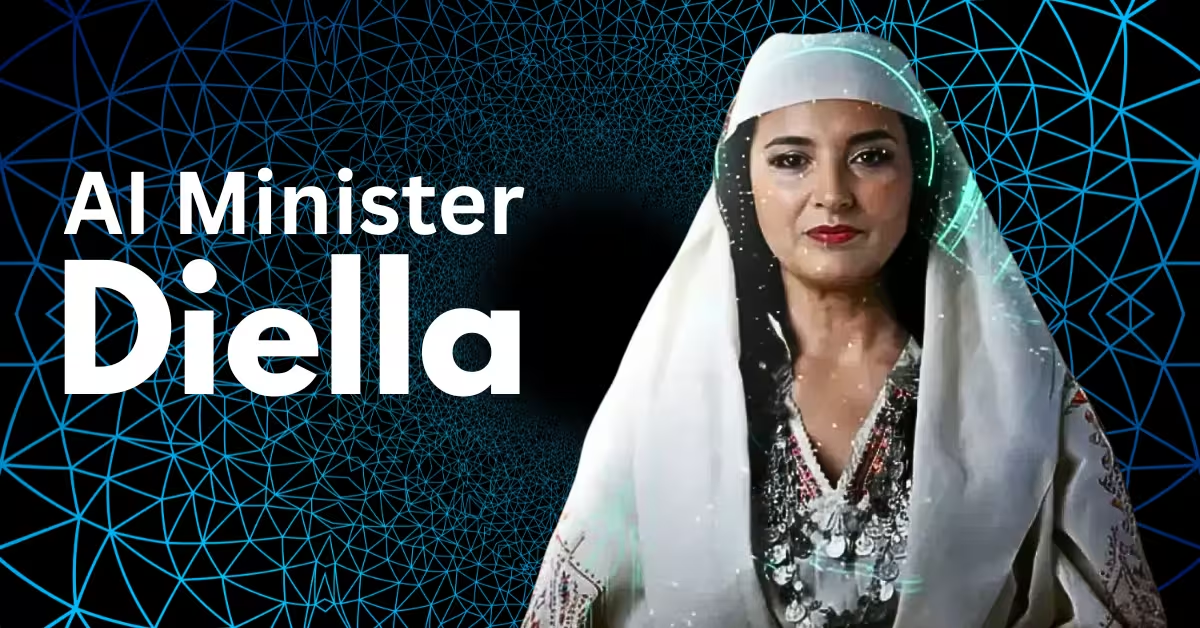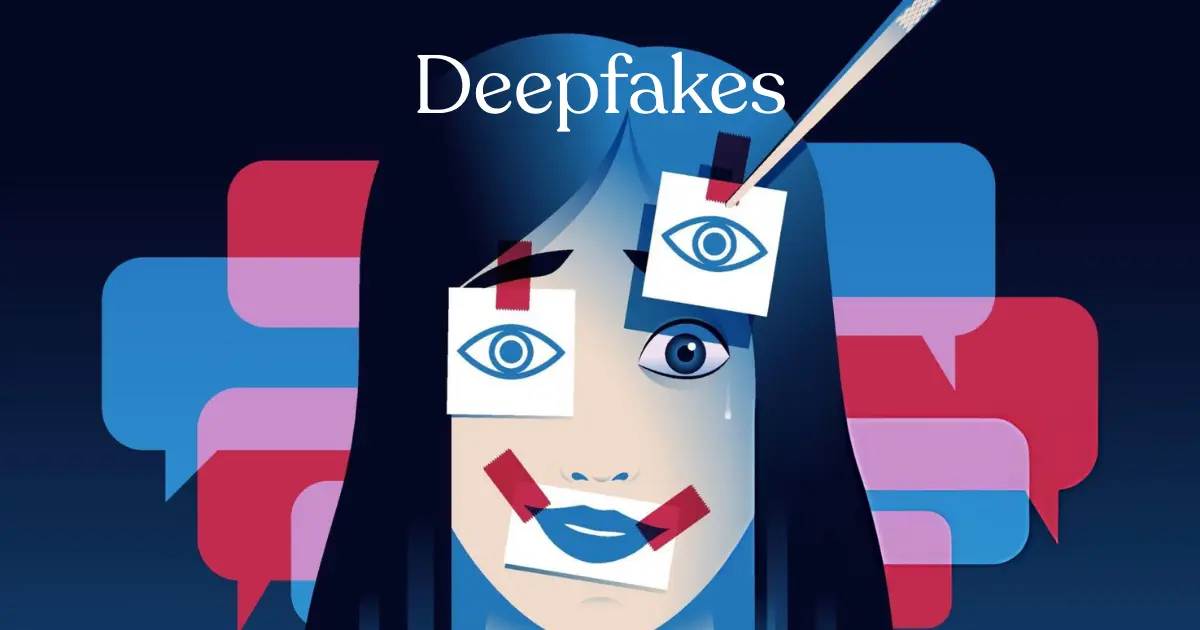Diella—Albania’s headline-grabbing “AI minister”—is a state-built artificial intelligence system that began as a virtual assistant on the eAlbania platform and was later elevated to a symbolic cabinet role to tackle corruption in public procurement.
Framed by Prime Minister Edi Rama as a way to standardize and audit tender decisions, Diella also sparked viral attention when he joked it was “pregnant with 83 children,” a metaphor for spinning up dozens of specialized assistant agents to brief lawmakers.
Beyond the theatrics, Diella’s promise rests on transparent rules, rigorous oversight, and clear human accountability—conditions that will determine whether it becomes a genuine model for AI-assisted governance or remains a political curiosity.
Table of Contents
1. What Is Diella?
Diella (from the Albanian word diell, meaning “sun”) is an artificial intelligence system created to help citizens navigate public services and, later, to take on a formal role in public procurement oversight.
Launched initially as a virtual assistant on Albania’s eAlbania portal, Diella began by answering questions and guiding users to the right government services and digital documents. The system was then elevated—symbolically and operationally—when the Albanian government announced Diella as “Minister of State for Artificial Intelligence,” in connection with a broader anti-corruption agenda centered on procurement transparency.
According to widely reported accounts, the idea is that a coded, auditable system—with standardized decision criteria—could reduce human discretion in tendering and make government purchasing more transparent, traceable, and less vulnerable to bribery or favoritism. Global Finance Magazine, in summarizing the move, notes that Diella is billed as the world’s first AI “minister,” focusing on procurement as Albania seeks to demonstrate reform momentum toward European Union ambitions.
2. How Diella Started
Diella debuted as a text-based assistant on eAlbania, the government’s digital services platform. Early versions handled practical queries and offered routing to the correct online process for citizens and businesses. The platform integration and scope—supporting document retrieval and service navigation—were designed to cut red tape and reduce line-by-line, in-person bureaucracy that can slow service delivery.
The evolution of Diella included a voice-enabled update and a humanlike avatar (portrayed in traditional Albanian attire) to make the system more approachable to the general public.
The uploaded fact sheet for Diella also indicates a collaboration with Microsoft’s Azure stack and OpenAI-powered large language models, with Albania’s National Agency for Information Society (AKSHI) designing workflows for how Diella should respond within government rules.
The infobox on page 1 highlights the core details—developer (AKSHI), operating context (eAlbania), engine (Azure), and language availability (Albanian)—as well as the system’s ministerial designation.
3. Why Public Procurement?
Public procurement is high-stakes: it’s where governments buy goods, services, and infrastructure from private suppliers. That makes it one of the most exposed areas to waste and corruption worldwide.
By codifying evaluation criteria and logging decision trails, the Albanian government argues that Diella can standardize decisions and leave an auditable record. GFMag’s overview echoes this intended purpose—an incorruptible, nonpartisan “watchdog” approach that could accelerate decisions while reducing discretion that can cloud fairness.
Crucially, Diella’s backers also frame the initiative as part of wider EU-oriented rule-of-law reforms. If procurement becomes more transparent and consistent, it can help satisfy external benchmarks for governance quality.
4. “Pregnant with 83 Children”: What Did the Prime Minister Mean?
A remark by Prime Minister Edi Rama made global headlines: he said Diella is “pregnant with 83 children.” This was not literal.
In Rama’s framing, the “children” are 83 specialized AI assistants—one for each member of the governing Socialist Party’s parliamentary group—intended to record parliamentary proceedings and brief MPs on anything they miss, from speeches to counter-arguments. NDTV and other outlets reported that the assistants would be rolled out as part of a plan to make legislative workflows more responsive and better informed. According to NDTV’s reporting, Rama also suggested the system could be fully operational by the end of 2026.
The Times of India and Gulf News ran similar explainers clarifying that the “83 children” are digital clones or derivative bots intended to act as per-MP aides rather than biological offspring—language that, while attention-grabbing, was aimed at describing a scaled architecture (multiple task-specific agents) rather than a single monolithic assistant.
Takeaway: the “pregnancy” phrasing is metaphorical, referring to Diella’s capacity to spawn many smaller, purpose-built AI assistants that inherit knowledge and style from a single parent system.
5. What Diella Actually Does vs. What It Symbolizes
Operationally, early iterations of Diella have been about service guidance, document access, and workflows that connect citizens to existing eAlbania backends.
The uploaded dossier indicates that, by mid-2025, Diella had already helped route users to tens of thousands of documents and hundreds of services—though the final generation of documents and transactional outputs still came from the eAlbania backend systems, not the Diella model itself. This distinction matters: Diella was a front-end intelligence layer orchestrating human-designed processes.
Symbolically, the “minister” label makes Diella stand out globally: a non-human entity formally occupying a cabinet portfolio. That framing has sparked debate about accountability, legal personhood, and political theater—with critics warning that code is written by humans and that the political incentives around an AI persona can still bias outcomes if the inputs and guardrails are controlled by the incumbent government.
GFMag captures these criticisms, quoting scholars who question who is responsible if Diella errs, and whether the rule of law can function when a decisionmaker is algorithmic.
6. The Tech Stack and Governance Guardrails
From the available materials:
- Platform & Models: Diella is implemented with Microsoft Azure infrastructure and OpenAI-based large language models, wrapped by AKSHI-designed scripts and workflows that align outputs with Albanian law and administrative procedures.
- Interface Evolution: From text chat to voice and an animated avatar, aiming for usability and trust. The avatar’s look—traditional attire—is a cultural touch intended to humanize a digital assistant.
- Procurement Focus: The government’s stated plan is to incrementally transfer procurement responsibilities to reduce political influence in tenders—paired with promises that “public tenders will be 100% free of corruption.” (This is an ambition, not a guarantee; converting political pledges into robust, testable code and process is the hard part.)
Good governance of AI in procurement requires:
- Transparent criteria: Clear, published evaluation rubrics for each tender.
- Audit logs: End-to-end traceability—what data Diella used, which rules were applied, and why it recommended a given outcome.
- Human oversight: A legally accountable human in the loop empowered to pause, reverse, or appeal AI-influenced decisions.
- Security & integrity testing: Regular red-teaming and third-party audits for adversarial prompts, data poisoning, procurement fraud signals, and model drift.
- Appeals process: A documented path for vendors to contest outcomes with independent review.
These controls respond to the precise concerns GFMag raised: who is liable, how due process is preserved, and whether cybersecurity and governance can keep pace with the political symbolism of an AI “minister.”
7. Parliamentary Use-Cases: The 83 Assistants
If realized as announced, the 83 assistants would:
- Ingest parliamentary transcripts and media/video of sessions.
- Summarize key interventions, votes, and counter-arguments for each MP.
- Alert MPs to agenda changes, amendments, and references to their past statements.
- Draft suggested questions or rebuttals, with citations to the record.
NDTV’s report makes clear that these assistants are meant to augment parliamentary work—“telling you what was said while you were away” and recommending where to “counter-attack,” i.e., respond substantively. The goal is coverage and continuity, not replacement of elected officials.
8. Benefits to Watch For
- Consistency & Speed in Procurement
With standardized, auditable criteria, decisions can be faster and more consistent, reducing the incentive for back-channeling. Diella’s early scaling within eAlbania (routing across services and documents) shows the state’s ability to operationalize automation at population scale. - Public Trust Through Traceability
If the government publishes Diella’s decision logic and keeps logs accessible (with appropriate privacy protections), the public and watchdogs can verify fairness claims in real time. - Legislative Productivity
The “83 assistants” model could level the information field inside parliament by making the same high-quality notes available to all MPs in the governing party—potentially reducing reliance on ad-hoc staff capacity. International outlets primarily highlighted the novelty of the metaphor; the important operational test is whether these agentic tools actually improve debate quality and reduce misinformation in the chamber.
9. Risks and Open Questions
- Accountability: If Diella recommends a supplier later found to be non-compliant, who is responsible—procurement officials, the supervising minister, the vendor of the AI stack, or the model designers? GFMag relays precisely this legal and ethical uncertainty.
- Bias & Fairness: Algorithms can encode existing biases. Without publicly reviewable evaluation criteria and regular fairness testing, an AI-mediated tender could still systematically disadvantage certain bidders.
- Security: Procurement is a ripe target for adversarial manipulation, model-prompting attacks, and data poisoning. Enterprise-grade Azure security helps, but governance hygiene—isolation, access controls, incident response—matters just as much.
- Political Instrumentalization: Critics worry that a digital persona can front for human decisions while diffusing accountability—or be used as a propaganda device. The theater vs. transparency tension runs through much of the international coverage and expert commentary.
10. Timeline at a Glance
- January 2025: Diella launches on eAlbania as a virtual assistant for citizens and businesses, guiding people to digital documents and services.
- Mid-2025: Expanded features, including voice and an avatar, and scaled usage for document access and service routing.
- September 2025: The government formally elevates Diella as a cabinet-level AI “minister,” tying its remit to public procurement and anti-corruption pledges.
- October 2025: Rama’s “pregnant with 83 children” remark reframes Diella as a parent system spawning 83 assistant agents for MPs; coverage clarifies the metaphor and the planned end-2026 readiness.
11. How to Measure Whether Diella Is Working
Procurement KPIs
- Average tender cycle time (publish → award).
- Share of open vs. restricted procedures.
- Bidder participation: average bids per tender; new-entrant share.
- Challenge rate and overturn rate on appeal.
Transparency Metrics
- Real-time disclosure: Are evaluation criteria, scoring, and logs published?
- Machine-readable data availability for civic tech audits.
Integrity & Security Audits
- Regular third-party audits of model behavior, data pipelines, and access controls.
- Simulated adversarial tests and red-team reports.
Parliamentary Productivity
- Attendance-adjusted engagement (questions asked, amendments filed).
- Citation quality in debates (more primary-source references?).
- Cross-checking accuracy of AI summaries vs. official transcripts.
12. Frequently Asked Questions (FAQ)
1. Is Diella a person?
No. Diella is a software system—an AI-powered, workflow-guided tool running on Azure with LLM capabilities and scripted behaviors aligned with Albanian administrative law. The “minister” title reflects a political designation to a cabinet role, not personhood.
2. Did Albania really appoint an AI as a minister?
Yes—as reported internationally—with a remit around public procurement and anti-corruption. The move is globally unprecedented, which is why it drew such widespread attention and debate. (Global Finance Magazine)
3. What does “pregnant with 83 children” mean?
It’s a metaphor for 83 derivative AI assistants—one for each Socialist MP—designed to record, summarize, and brief lawmakers on parliamentary proceedings and missed content, with a suggested full rollout by end-2026. (www.ndtv.com)
4. Does Diella “decide” tenders on its own?
Government statements aspire to transfer parts of procurement responsibilities into the system. In practice, the effectiveness and legality depend on published processes, human oversight, and auditability—the elements that make AI-assisted procurement accountable rather than opaque.
5. Why target procurement instead of, say, tax or health?
Procurement is a high-impact corruption vector; making it transparent can deliver large fiscal and trust gains quickly. It’s also a domain where structured criteria and repeatable evaluations suit automation—if designed and governed well.
13. What Success Would Look Like in 2–3 Years
- Legal clarity on who signs, who reviews, and who is liable—codified in statute or binding regulation.
- Open data by default on tenders, criteria, and scoring, with logs sufficient for external replication of results.
- Documented reductions in cycle time and increases in bidder participation—especially SME and new-entrant participation.
- Robust appeals outcomes that show the system can self-correct without political intervention.
- Independent audits confirming no systemic bias in outcomes and no serious incidents of prompt-based manipulation or data leakage.
In parliament, success would mean the 83 assistants demonstrably improve the quality and accuracy of debate—fewer misquotes, more source-anchored arguments, and faster follow-up on citizen concerns flagged during sessions.
14. Bottom Line
Diella started as a pragmatic, citizen-facing helpdesk on eAlbania and evolved into a global first: an AI system assigned a ministerial title to signal a national push on procurement transparency.
The promise—speed, standardization, and proof-of-fairness—sits alongside serious governance questions: who’s accountable, how have rules been codified, and whether political symbolism is matched by technical and legal rigor.
The now-famous line that Diella is “pregnant with 83 children” simply highlights a multi-agent strategy: using many small, specialized assistants to scale institutional memory and responsiveness—especially in parliament.
If Albania can pair that ambition with radical transparency, strong audits, and clear human accountability, Diella could become a model for AI-assisted governance rather than just a headline.
Related


